How to Choose the Best Antarctica Cruise & What You Can Expect
There’s no way your imagination can prepare you for the magnificence you’ll encounter in Antarctica. Vast, pristine, and empty but irresistible, Antarctica is the 5th-largest continent on Earth and the largest nature reserve on the planet. A place for scientific research, exploration, and, more recently, tourism. It’s a fragile ecosystem and one that needs to be further protected for the future of our planet. If you’re thinking of visiting this ice- and snow-covered continent, let this be your ultimate guide helping you to choose the best Antarctica cruise. I’ll help you pick the right company and provide you with all the information you need on what to expect, what to pack, and what to know before heading south to the land of icebergs and penguins.
I traveled to Antarctica with Viva Expeditions, a tour company specializing in the polar regions of the world. I set sail on an expedition-style ship called the Ocean Albatros with around 140 other passengers for 10 days and 9 nights. We departed from the southern town of Ushuaia in Argentina. Ushuaia is home to the Tierra Del Fuego National Park and is the main cruise terminal for almost all ships heading to Antarctica.
Important Note: If you’re planning to depart on a cruise ship out of Ushuaia, make sure to arrive at least one night before your scheduled departure time. Delays and flight cancellations are common, especially if and when the weather is bad.
Cruising around Antarctica is such an incredible experience! I tried to share every tip and pointer I wish I’d had before my first cruise. I’m including affiliate links in the post, and if you decide to make a purchase through one, I may earn a small commission at no cost to you.
Why Cruise to Antarctica
The main way tourists can visit Antarctica is on a cruise. While there are flights from Ushuaia to the Antarctic mainland, there is little to no infrastructure for tourists on the continent. That is unless you plan on joining an expedition to hike Mt. Vinson or wish to camp out at Union Glacier.
Given this, most travelers opt to visit Antarctica on expedition cruises, as they provide more options in terms of amenities and comfort. Although specific facilities and services can vary, cruises typically offer private and comfortable accommodations, fine-dining restaurants, full-service bars, on-board swimming pools, hot tubs, and a variety of entertainment.
In addition to this, many cruises provide the opportunity for passengers to explore Antarctica up close via sea and land excursions. And, of course, we can’t forget about the amazingly scenic views and vantage points that cruise ships provide from the open water.
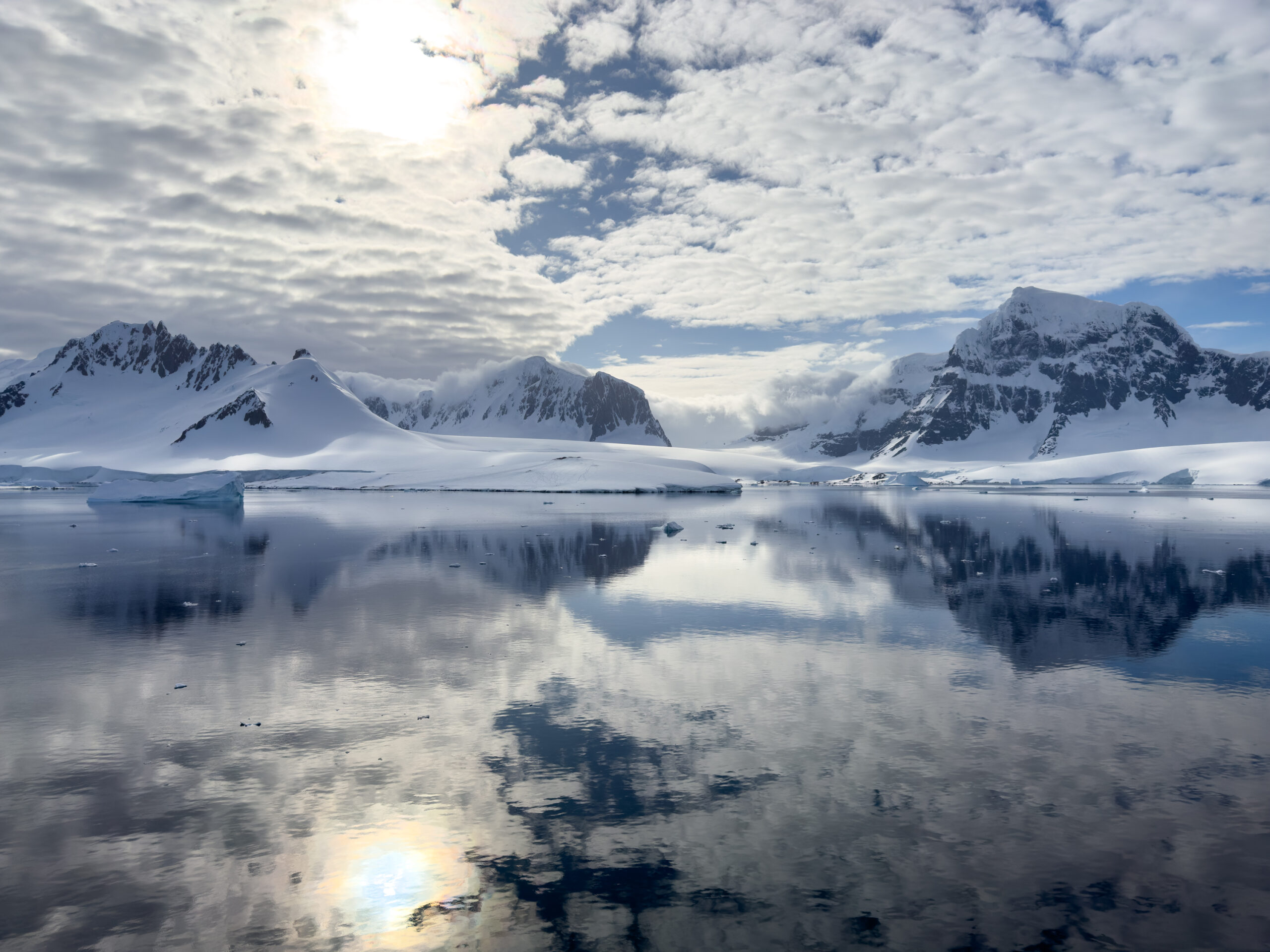
Choosing the Best Antarctica Cruise: What to Expect
Here’s a more in-depth look at my experience aboard a cruise to Antarctica and what you can expect from the moment you leave Ushuaia until your final days returning from the snow covered landscape.
What is the Ship Like When Cruising to Antarctica?
When heading to Antarctica, there are a lot of options for the size and style of the ship—ranging from intimate small ship cruises with less than 100 passengers to huge mega ships that won’t allow you to disembark on the continent itself. I was aboard the Ocean Albatros, an expedition style ship that, at its max, holds just under 200 passengers.
This ship has ample space for all the guests to spread out and relax. The ship featured a large lecture hall that was also used for all gatherings and games. Two lounges and bars on floor 5 and upstairs with views and access to the outer deck, it also featured one main dining area and two secondary restaurants that took reservations. There was also a sauna, small gym, two hot tubs and many outdoor areas to walk, look for whales be in the open air.
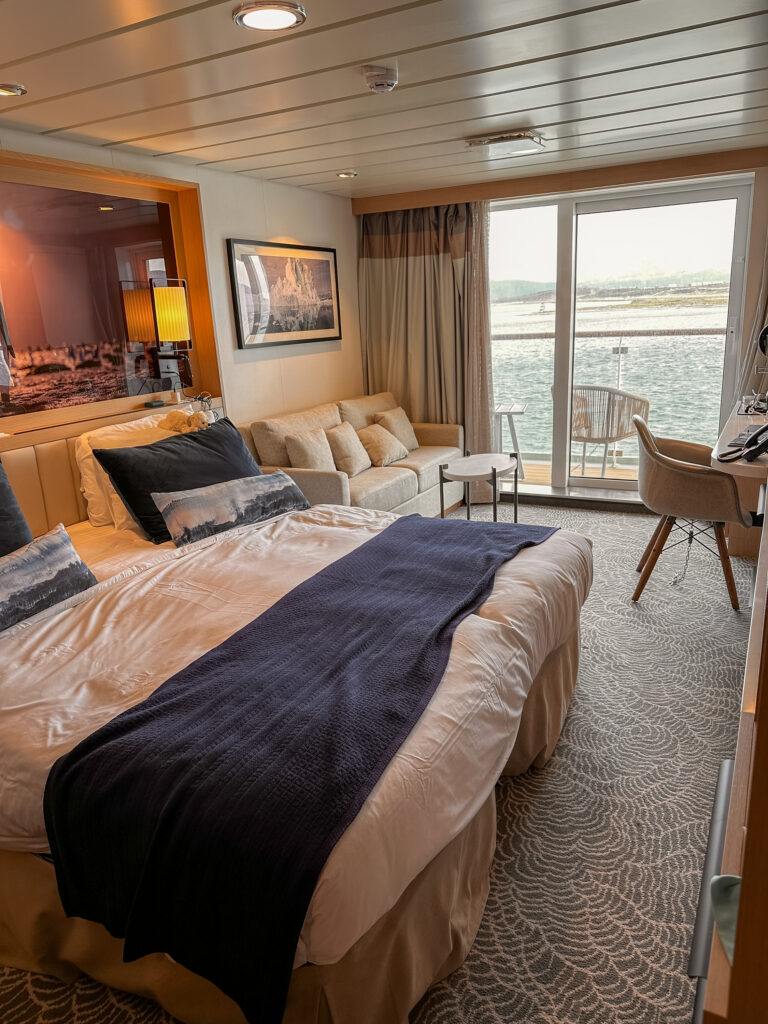
King Balcony Suite on the Ocean Albatros
I was staying in a king balcony suite on Deck 6, and I must say—the room was spacious and very well-appointed. Amenities included a mini fridge, television, desk for any work you might have, sofa, and a good-sized closet. Our balcony had two chairs and a table and was a place we spent a lot of time.
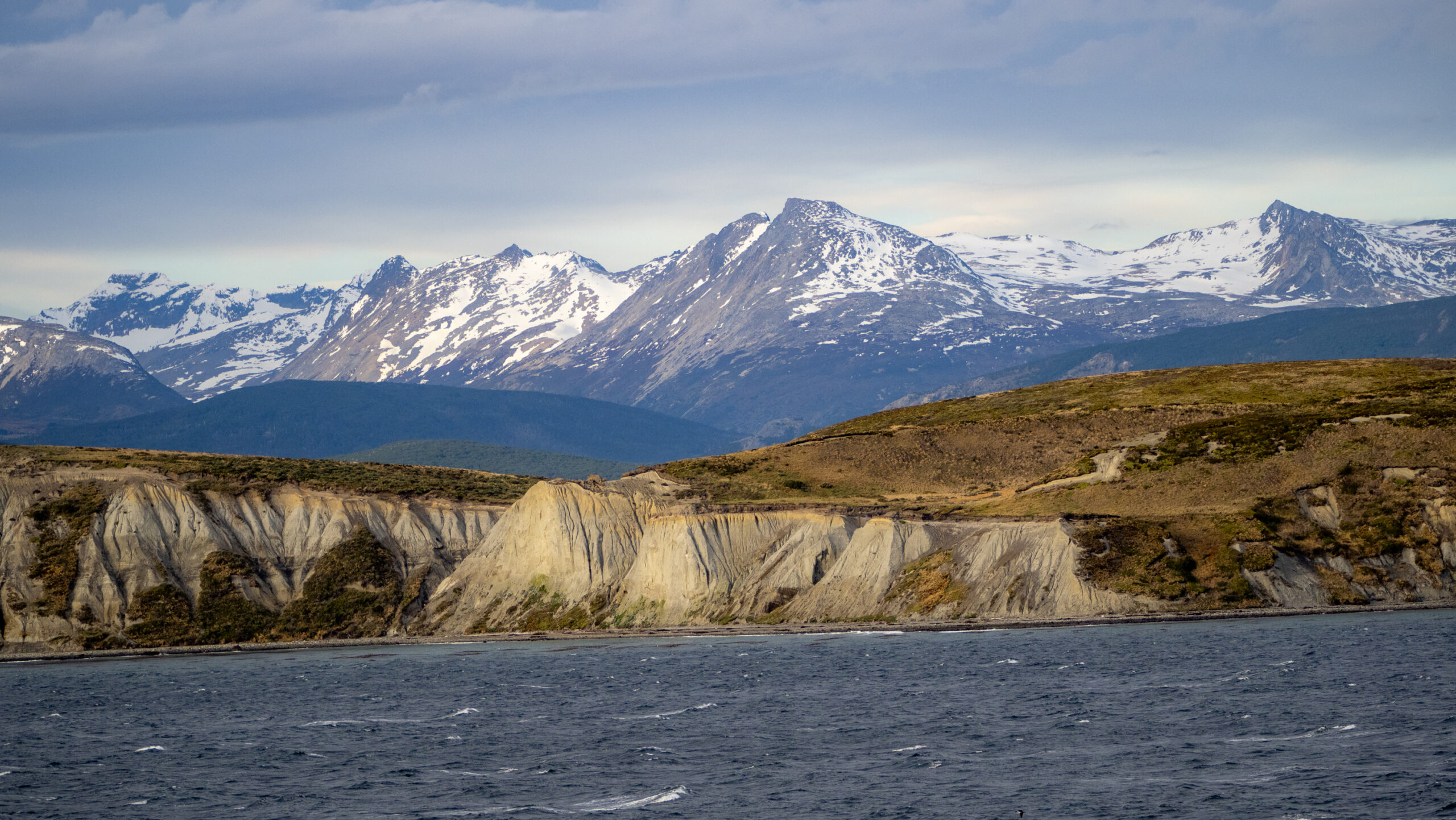
Leaving Ushuaia and Cruising Across the Drake Passage
At this point in my life, I’ve been on a lot of ships and inside a lot of ports. Ushuaia is certainly a beautiful place, enveloped by snow-covered mountains and long fjords that stretch out to the sea. Boarding the ship around 4 pm, this first evening was one of beauty and relaxation as we sailed slowly out of the Beagle Channel and towards the open ocean.
Watching the last sunset I would see over land for more than a week while standing on deck to take in the passing views of Chile and Argentina was a truly magical experience.
The Drake Passage
Late in the evening of our first day on the ship, we started our voyage through the Drake Passage. The Drake Passage is one of the roughest ocean channels in the world, where the Atlantic, Pacific, and Southern Oceans collide. This meeting point creates an upwelling of currents and can be prone to strong winds and unpredictable weather.
Sea waves can range from a few feet to upwards of 30 feet on any given day. The good news: the captain of our ship was excellent and made sure to time our crossing and our speed to have the least amount of rocking. Most expedition ships are also built with stabilizers so the ship stays upright even in rough conditions.
We encountered waves somewhere around 6 feet for around 36 hours. This was the toughest part of the trip for most, and many people stayed in their cabins riding out the rocking sea from bed, watching a movie, or listening to one of the many presentations that took place throughout the journey south.
It is advisable to wear a motion sickness patch or take some sort of Dramamine or motion sickness medication before the ship hits open water. I spent much of the second day splitting time between my room and outdoors on the upper decks looking for birds. Albatross were a common companion as we edged closer and closer to land.
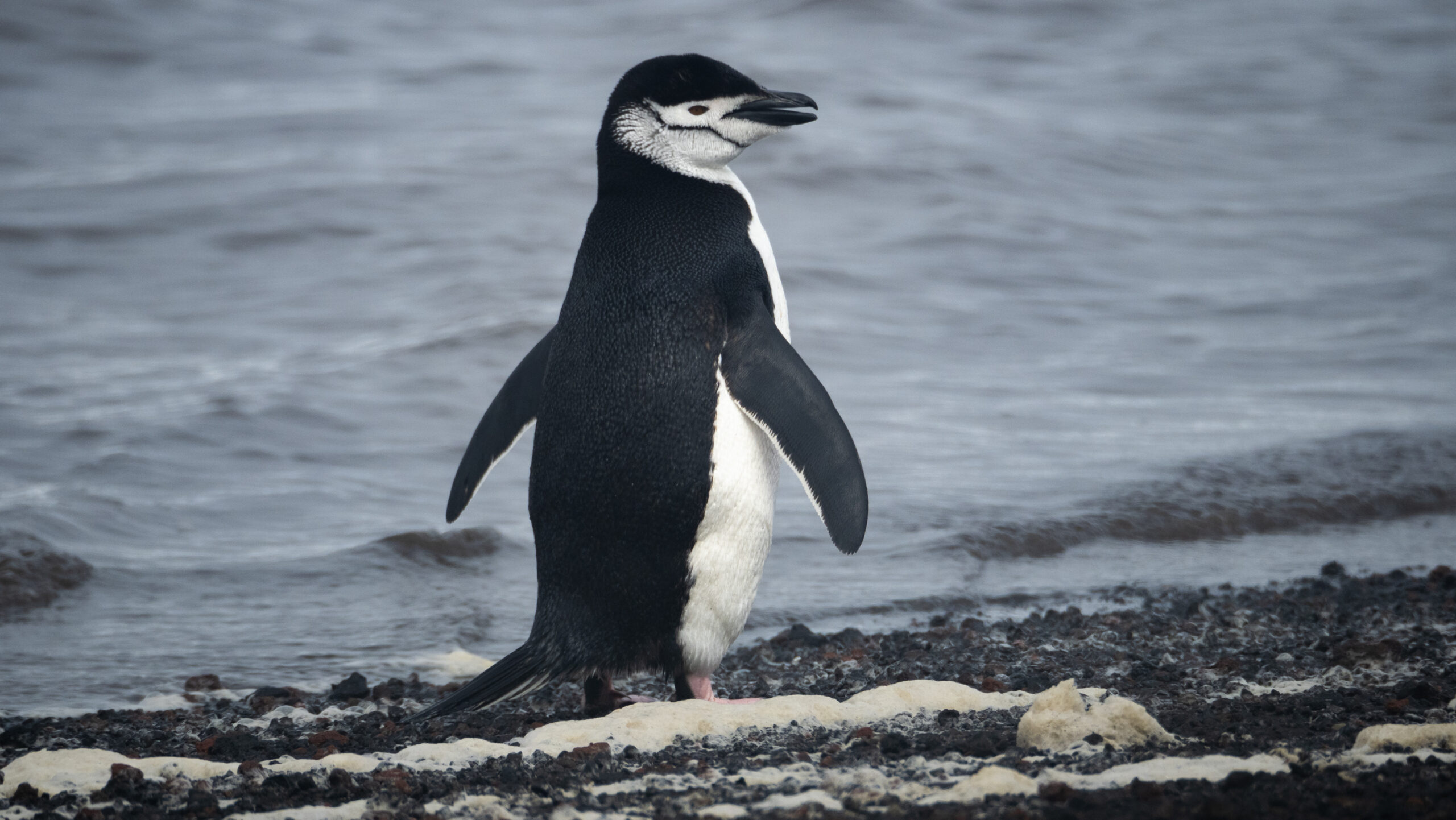
The South Shetland Islands
After a full day and a half at sea on the best Antarctica cruise, we finally closed in on land and heard the announcement that the South Shetland Islands would be coming into view within the next few minutes. The South Shetland Islands are a small chain of 11 islands located around 65 miles from the Antarctic Peninsula. This is a popular stop for almost all expedition cruises and our ship would be stopping at three of the various islands: Barrientos Island, Deception Island, and Elephant Point.
What Can You See in the South Shetland Islands?
There is plenty of wildlife to see in the South Shetland Islands. Teeming with wildlife like penguins, seals, and birds, this is one of the best places in summer to spot leopard, Weddell, and elephant seals, as well as several species of penguins. Of the 17 penguin species in the world, 8 can be found between South America and Antarctica!
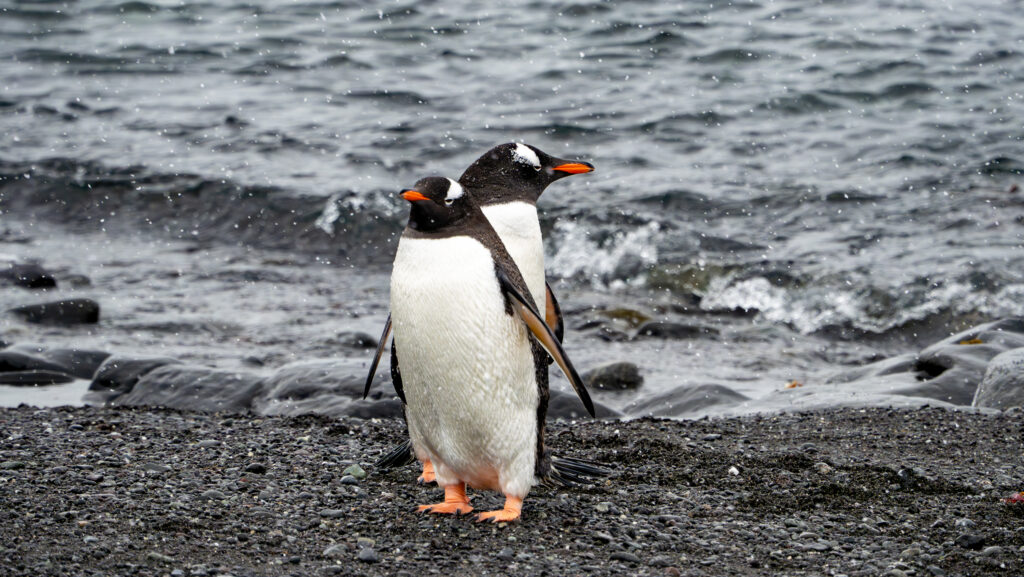
Gentoo Penguins on Barrientos Island
Barrientos Island
Barrientos Island in the South Shetlands is home to 2 penguin species and several large breeding colonies for both the Gentoo penguin and the Chinstrap penguin. Gentoo penguins are the third-largest penguin and the scarcest, with just 300,000 breeding pairs in the region. These penguins make nests out of small volcanic rocks and mate for life. Chicks take 35 days to hatch and eventually grow to reach a height of 30 inches, weighing in at an average of 12 pounds.
I also sawa Chinstrap penguins, which are the most abundant penguins in Antarctica, in great numbers. Easy to identify with the black strap that goes under their chins, these penguins were sliding on their bellies on the snow instead of walking. Similar to Gentoo penguins, Chinstrap chicks take about 37 days to hatch. However, they are a bit smaller in size, growing to a height of 28 inches and weighing between 7 to 11 pounds.
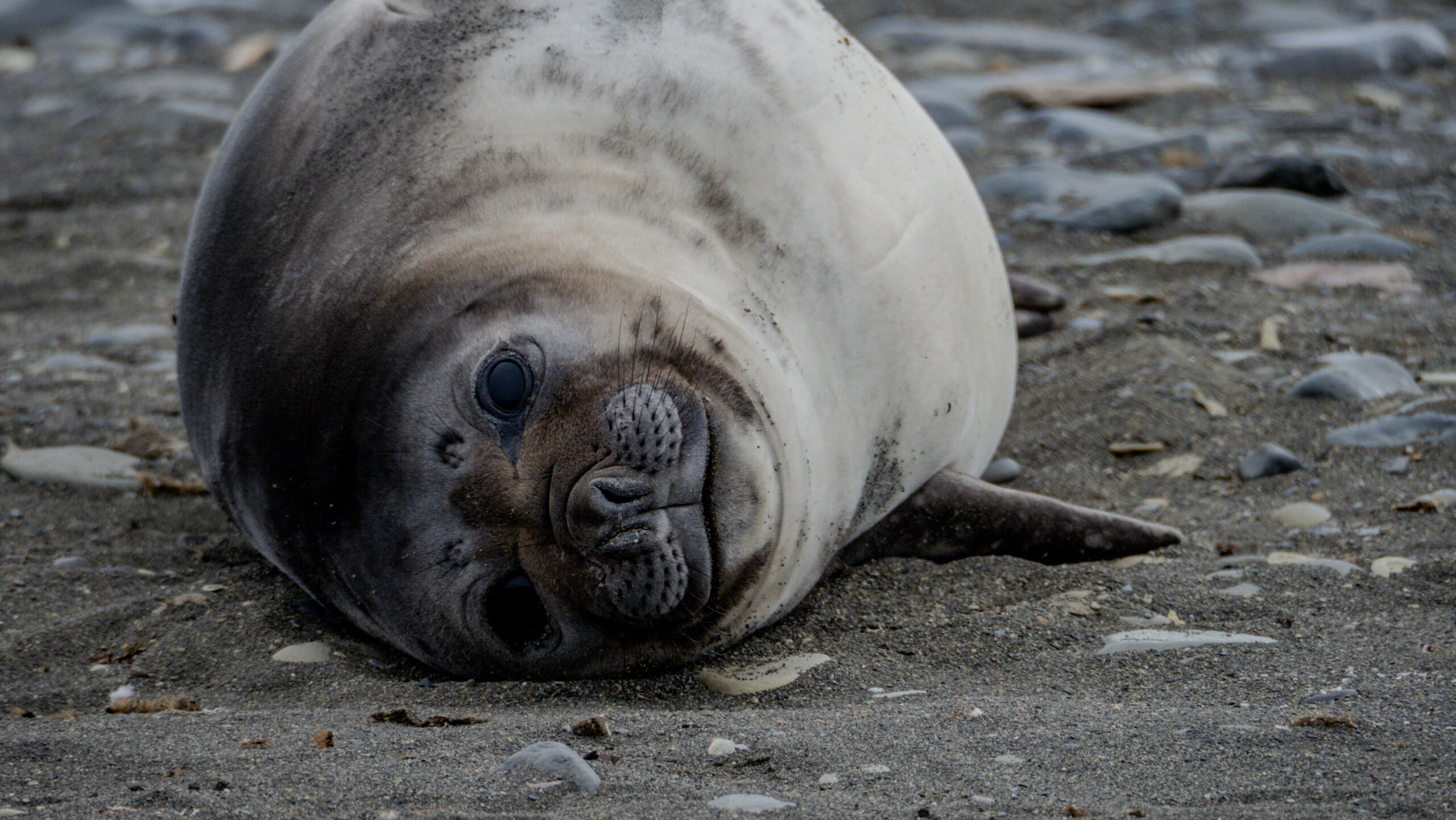
Elephant Point
On Elephant Point, you can see the mighty elephant seal, named for the bulbous appendage male seals have on their heads. This island in particular is one they use yearly for breeding. On my visit, it was home to dozens of adolescent elephant seals, mothers with pups, and a few younger males. Male Antarctica elephant seals can reach upwards of 8000 pounds while females usually top out at 2000 or 3000 pounds.
If you’ve never seen one of these massive seals then be prepared to fall in love with them. The pups are especially cute and will absolutely melt your heart!
Old vats used for storing whale fat and oil on Deception Island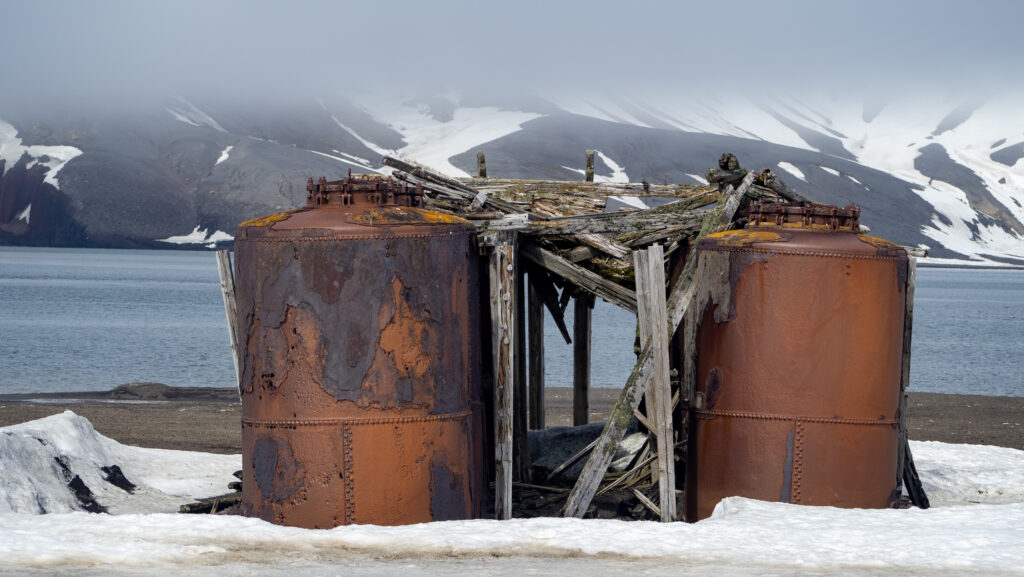
Deception Island
Deception Island is another island in the South Shetlands that’s a common cruise stop. This island is entirely unique in that it is the volcanic caldera of a still-active volcano. Shaped in a horseshoe, ships have one way they can enter and exit into the cone itself. A popular kayaking and walking destination, this island is also home to an old whaling station that was in operation in the early 1900s.
Many remnants of old whaling buildings, vats, and ovens still remain on the land, as well as a small cemetery. Because of the volcanic nature of this island, the water and the grounds here are much warmer than anywhere else in the South Shetlands. Steam and sulfur rise like smoke off the ground throughout the interior making for a landscape straight out of a Star Wars movie.
Want to see more photos from Antarctica? Then you’ll love these!
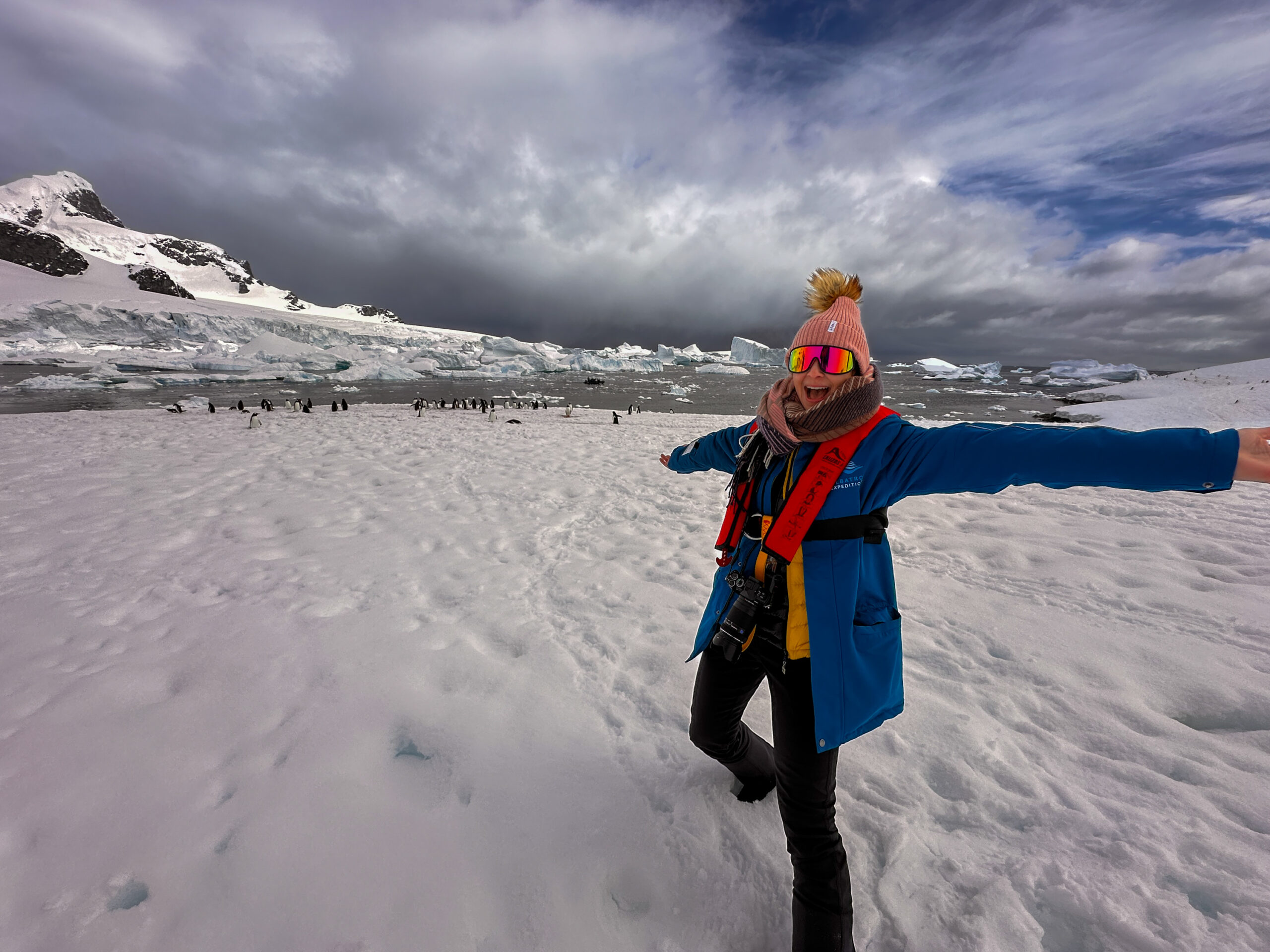
The Antarctic Peninsula
In addition to the South Shetlands, I spent 3 full days exploring the Antarctic Peninsula while on the best Antarctica cruise. Because Antarctica is so far from South America—over 800 miles—reaching this continent takes up a large part of the journey. Most ships never reach the continent itself, but merely visit the peninsula or the arm that reaches upwards towards South America. This region is home to the largest amount of wildlife and is incredibly diverse in landscapes.
Here are some of the things you may see and experience while visiting the Antarctic Peninsula.
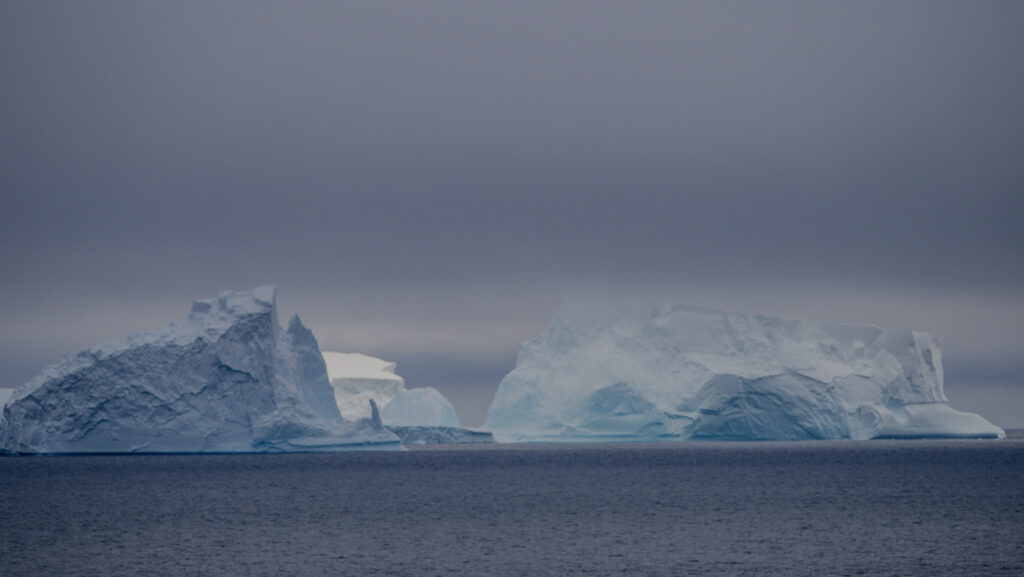
Icebergs in antarctica
Icebergs & Glaciers
My first thought as I reached the landmass of ice and snow was, “The snow is falling again and I am officially on the ice-covered mainland of Antarctica.”
We sailed into an icy strait, heading to make landfall on the continent itself. There were icebergs and huge chunks of floating ice cruising by us at every turn. Some were massive, spanning hundreds of feet long. Most had broken off from one of the many ice shelves or down-flowing glaciers.
These ice chunks, which get bluer with age, are known to float for years, getting trapped in the currents that circumnavigate the continent. Here, they slowly melt, break apart, or get stuck in shallow water. It’s a truly magical sight to see and Antarctica is one of the best places to witness it all, as the continent houses approximately 90% of the world’s glacier ice!
In fact, Antarctica and its far-reaching ice span more than 5.2 million acres, making it the fifth-largest continent in the world. To put it in other words, Antarctica is 1.5 times bigger than the continental United States. There is so much of this icy environment to experience and explore!
Be sure to watch my Antarctica video here to check out this incredible landscape for yourself.
Zodiak Rides
Zodiak rides were some of my favorite activities on this Antarctica cruise as they took passengers close to the continent’s massive icebergs. We’d cruise by colonies of birds and right along the water’s surface to see penguins swimming quickly through the crystal clear and icy waters.
Speaking of penguins—you will see so many penguins. On Cuverville Island, which lies just off the Antarctic Peninsula, one of the largest Gentoo penguin colonies on the planet covers the snow. Here, you can see them as they travel back and forth along their “penguin highways,” trails that zig-zag through the snow down to the water’s edge.
Research Stations
We had the opportunity to stop at several research stations. However, due to COVID restrictions, no one was able to go inside any of the stations. Instead, we merely walked around the grounds, which was quite interesting. We visited Brown Station, an Argentinian research station which is located in Paradise Bay. This bay is one of the most beautiful inlets I have ever seen, full of sparkling icebergs, and penguins swimming in the icy waters.
There are 70 research stations in the Antarctic Peninsula owned by different countries. Some are open year-round while others are only open in the summer.
Stunning Landscapes
Most of all, the spectacular and pristine landscapes you’ll see while taking the best Antarctica cruise will just blow your mind. The fluffy white snow blankets untouched mountains in all directions. On calm days, some of the bays we parked in were so still, flat, and glass-like it felt like you could step right off the boat and skate across the water.
With almost 24 hours of summer light each day, the evenings brought strange and otherworldly colors to the sky. Sometimes inverted clouds would meet the sea, cutting out the light and creating a grayish-blue twilight that hung over the water like a layer of cool whip on a blueberry pie. Other nights when the sky was clear, the reflections from the sun would paint bright yellows and pinks across the sky.
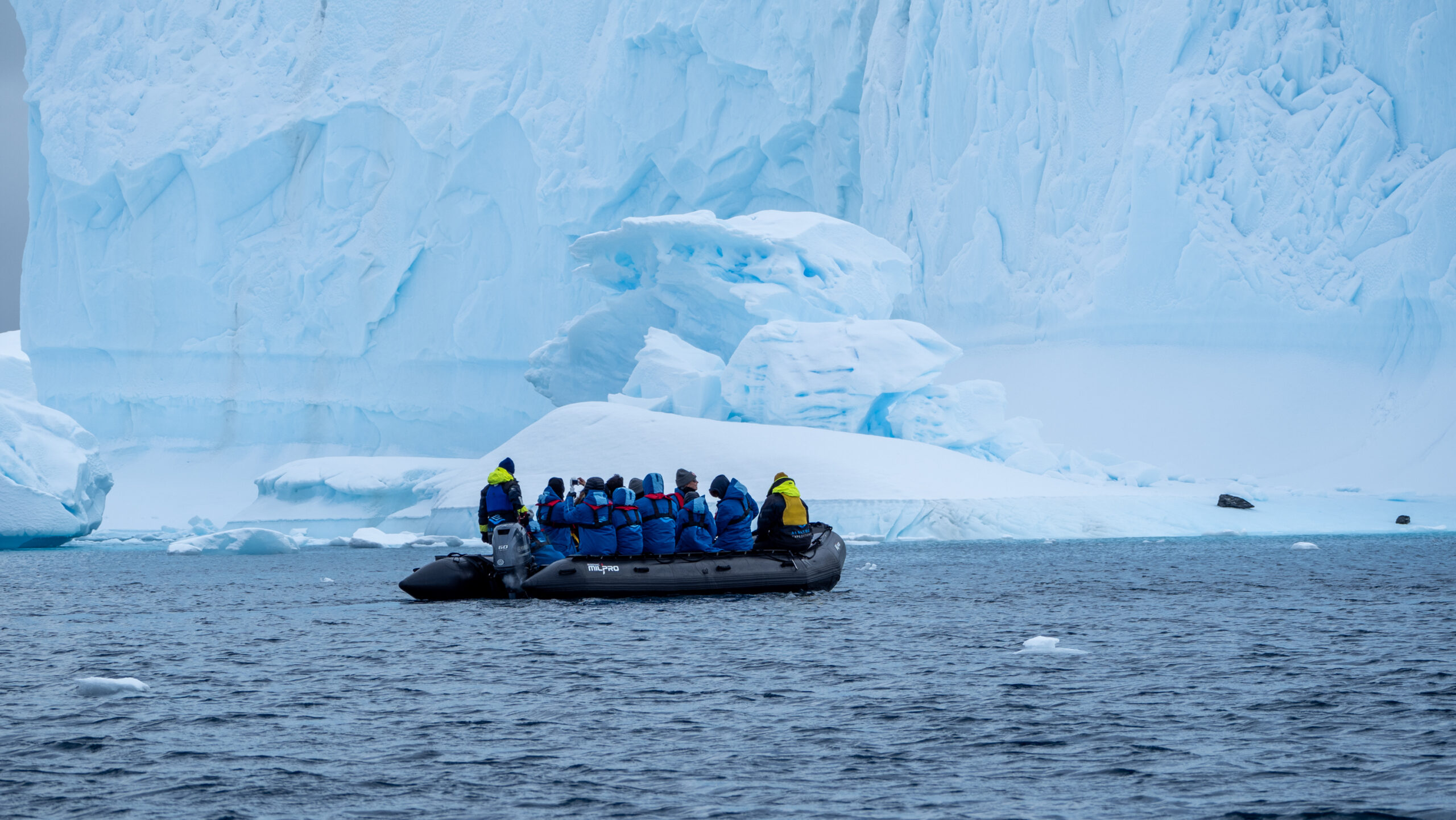

What Activities Can You Do on the Best Antarctica Cruise?
Not all ships going to Antarctica offer off-board activities, so keep this in mind. Our ship, however, was less than 200 passengers and allowed for the most access to shore excursions and locations. Many of the activities will cost an additional fee, depending on the ship. Here is a sampling of some activities that may be offered on a cruise expedition like mine.
Note: Because the weather is unpredictable, activities can be canceled at any time due to weather conditions.
- Snowshoeing: One of the best ways to explore Antarctica is on a guided snowshoe tour. Through this experience, you’ll be able to travel across the icy landscape, take in unforgettable views, and maybe even run into a penguin colony or two.
- Kayaking: While kayaking in Antarctica, you’ll have the opportunity to get up-close and personal with countless icebergs and floating sea ice. Glide among and around them, but also be sure to keep an eye out for wildlife. You may just happen upon a penguin or maybe even a whale if you’re lucky.
- Camping: For those interested in sleeping on land, you may just have the opportunity to spend a night camped out on the ice. Depending upon the weather conditions, you can either sleep in a tent or wrapped up in a bivvy bag under the stars—either way, be sure to wear lots of warm clothes.
- Polar Plunge: A truly once-in-a-lifetime opportunity, the polar plunge provides participants with the chance to jump into the icy cold waters of Antarctica. It only lasts a few seconds, but that’s really all you need to appreciate how truly cold this water really is!
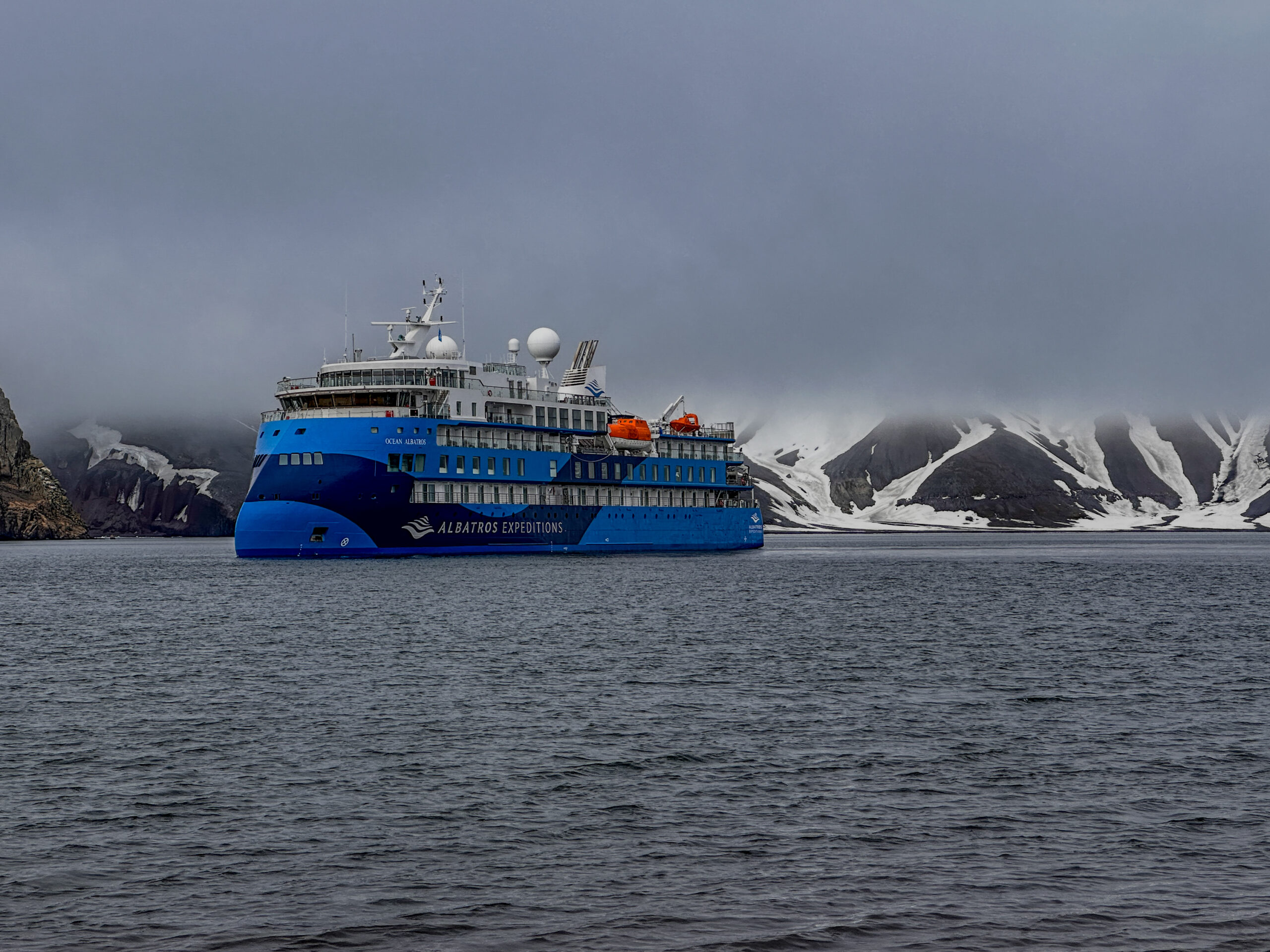
Choosing the Best Ship to Cruise Antarctica
Lots of cruise companies are now offering itineraries to visit Antarctica. Choosing the right ship can make a big difference in your experience.
Not all ships are allowed to do shore landings. Only those with fewer than 500 passengers can offer land excursions. Furthermore, only 100 people are allowed on shore at any one given time. This means larger ships typically make fewer landings and passengers are allotted less time to explore. If you wish to spend more time on land, it’s in your best interest to choose a smaller ship, ideally one with 200 or fewer passengers.
In addition to this, most itineraries will only take you along the Antarctic Peninsula. This is a small arm of ice that extends north towards South America. Most animal life lives within this zone in the South Shetland Islands and near and around the Peninsula. Popular stops around this area include Elephant Point, Deception Island, Barrientos Island, Paradise Bay, and Port Lockroy, among others.
If you want to explore beyond the Peninsula, there are cruises that depart from New Zealand and travel to Ross Sea. That being said, these cruises are typically much longer, as the destination is quite far away, and they are much more expensive. Alternatively, some cruises travel deeper along the Antarctic Peninsula and end beyond the Antarctic Circle. Again, however, these cruises are typically longer and very weather-dependent.
Finally, it’s important to note that not all ships are created equal. There are a variety of different ships out there that offer different amenities, services, and excursions. From luxury cruises to mid-range cruises, standard expedition cruises, and fly-in cruises (where you skip the Drake Passage), there are lots of options to consider. Given this, it’s best to be mindful of your priorities and to choose accordingly, so you can be sure to select the best cruise to Antarctica.
As a side note, keep in mind that activities like kayaking, camping, and snowshoeing are not always included in the price of cruises and tend to be limited in number. They can also be canceled due to weather at any time.
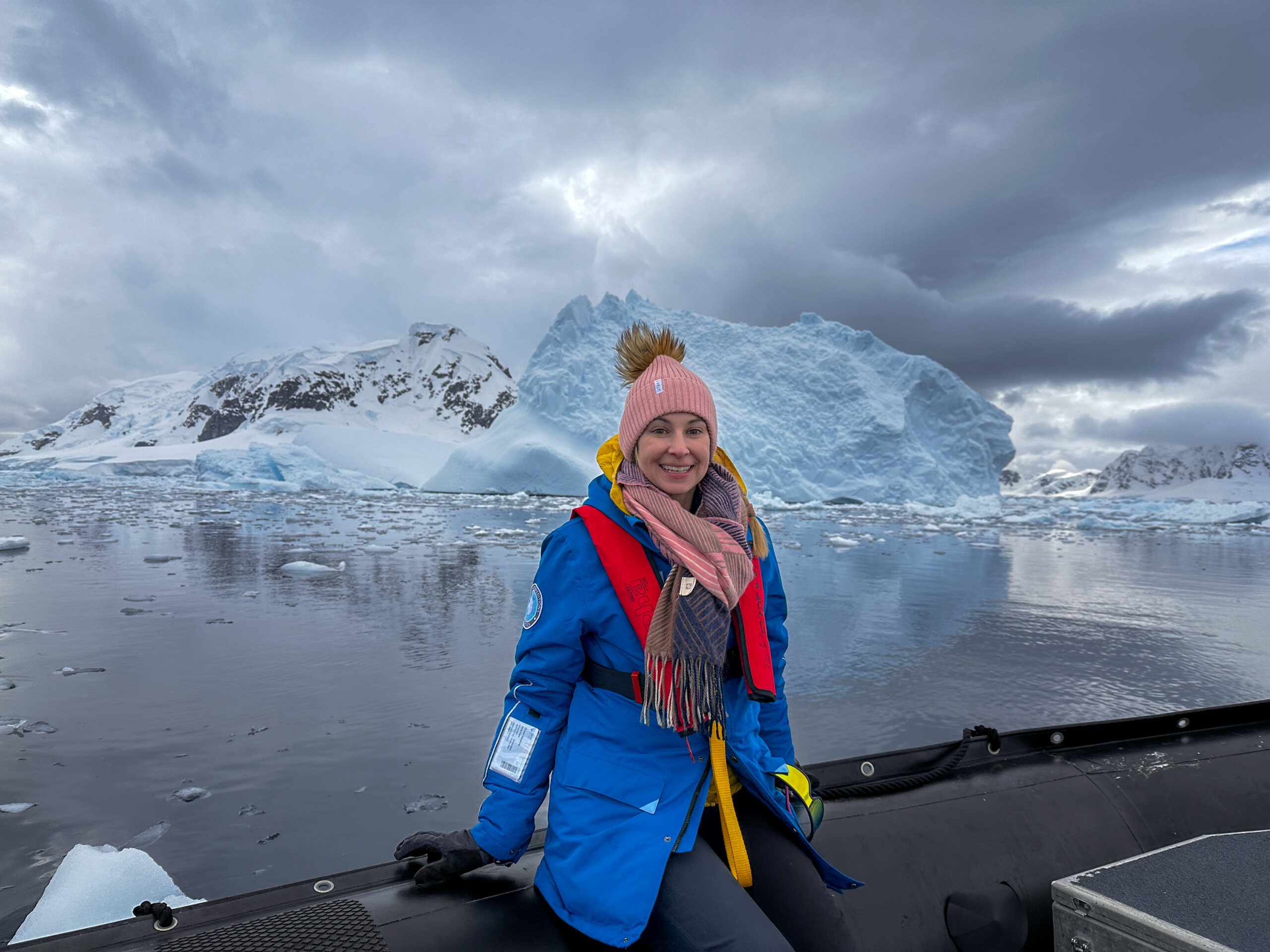
What to Pack for an Antarctica Cruise
Antarctica can have wild weather and huge swings in temperature, which means the best way to prepare is similar to how you would to hike a snow covered mountain. Having a good range of layers within your wardrobe is best, and you’ll need an outerlayer that is wind and waterproof (like the best women’s winter travel jacket).
Ships will provide waterproof boots suitable for shore landings, but you will need waterproof pants, jacekt and hat, as well as some layers to go underneath. For midlayers a great option is either a smartwool long underwear or travel shirts in merino wool from Unbound Merino. The ozone layer in Antarctica is quite thin and the landscape can be very bright, so a great pair of UV protective sunglasses or ski goggles is a must. Bring some suncreen.
If you get cold easily, I highly reccomend a pair of heated socks or a heated vest that uses a recheable battery to stay warm for several hours. Ororo has a great selection of both heated socks and vests.
For more ideas on what to pack, Viva Expedtions has a great downloadable packing guide for Antarctica. Snag the packing guide right here. I’ve also put together a gear locker with some of my favorite items for winter and cold weather.
Why Can’t You Cruise Antarctica in Winter?
Summer is the only time ships are allowed to travel to Antarctica because in winter, the ocean around it freezes. This makes the land mass 100 times bigger! That packed ice can easily crush ships to pieces, making it a dangerous journey. On top of this, Antarctica experiences polar night during the winter months, which means a ship would have to cross in complete darkness for days on end. This makes the Drake Passage that much more dangerous.
It’s not until October or November that the packed ice finally starts to break up. Around this time, cruise ships can resume their expeditions out to Antarctica, even though some sea ice still remains.
Go on the Best Antarctica Cruise with Viva Expeditions
I traveled to Antarctica with Viva Expeditions—the indisputed experts in polar travel. A full-service tour and travel company, they work with a variety of ships in Antarctica and can get you booked on the best ship for you.
If you book with Viva, you can save 5% by using my exclusive code VIPALICE!
You Might Also Like these articles
Hiking Mt. Elbert in the Snow: Colorado’s Tallest 14’er
Hiking Mt. Elbert: The Tallest 14er in Colorado Colorado is quiet, serene, and beautiful—and it has endless adventure in every season. From hiking Mt. Elbert and the Maroon Bells to skiing and fun activities like hot spring hopping, mountain biking, ghost town...
Winter Guide to Wildlife in Yellowstone National Park
Winter Guide to Wildlife in Yellowstone National Park Something I have wanted to do for years is see wolves in the wild in Yellowstone National Park. Yellowstone is America's first National Park, established in 1872 and known widely for its geothermal features. The...
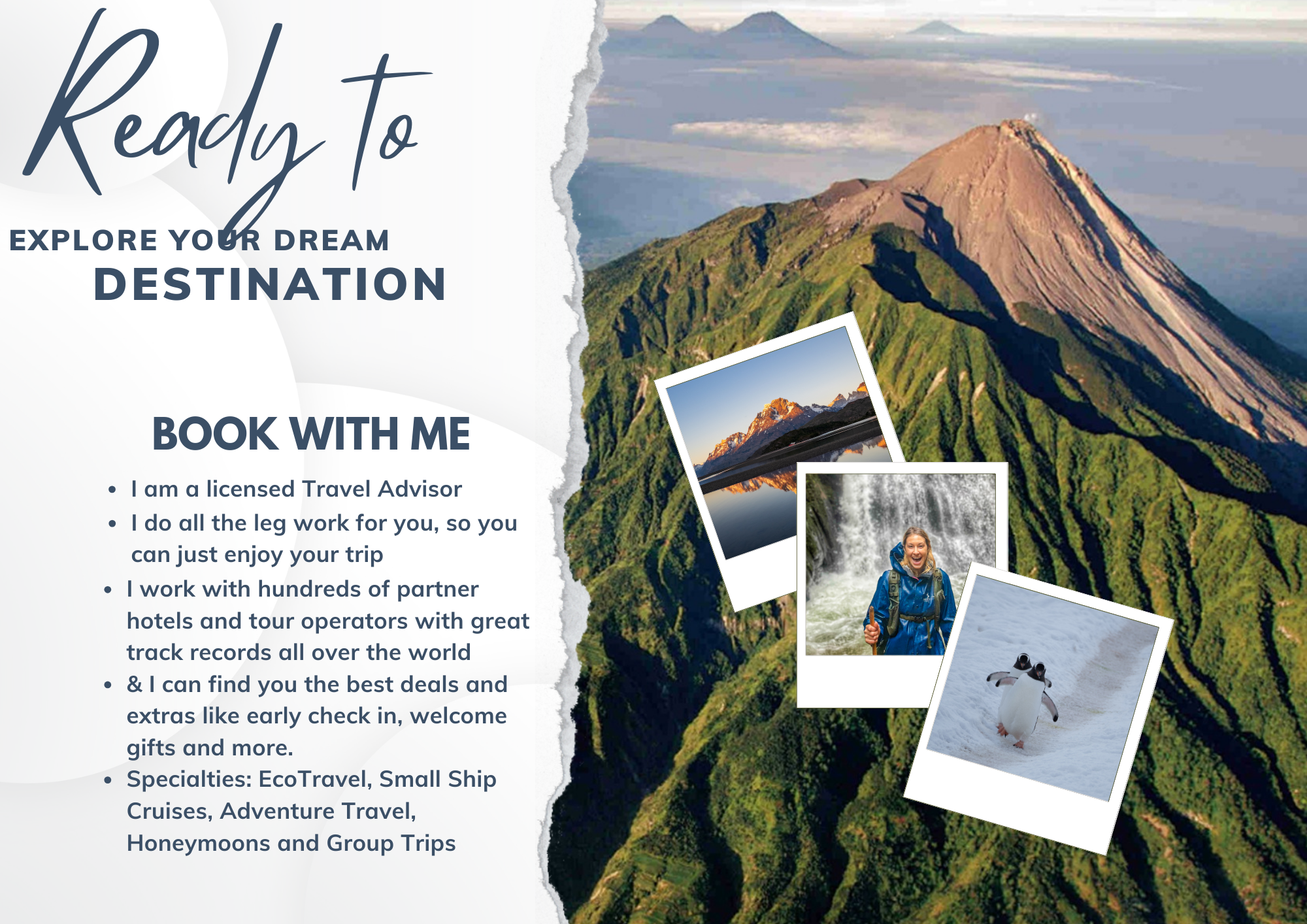

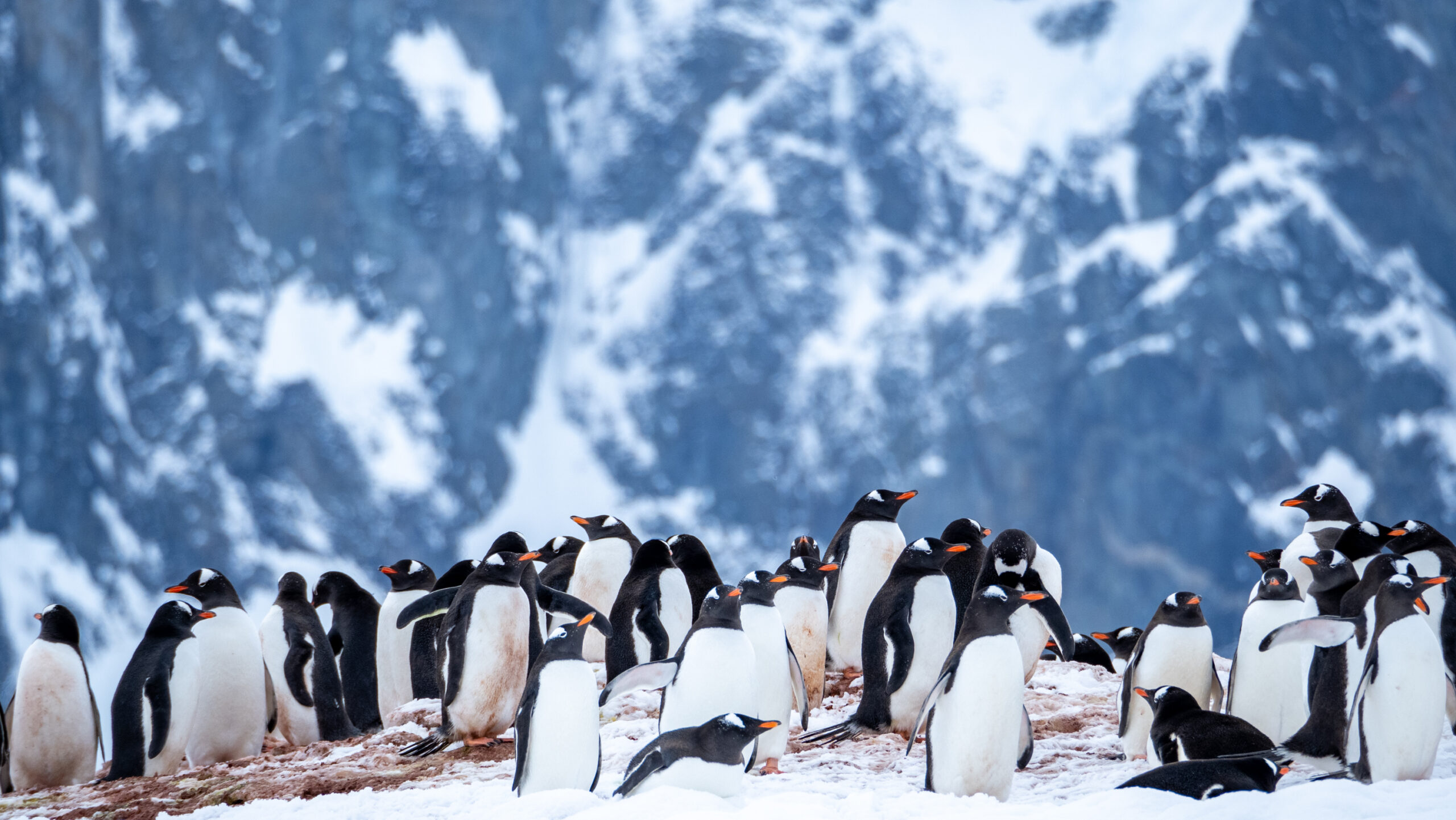
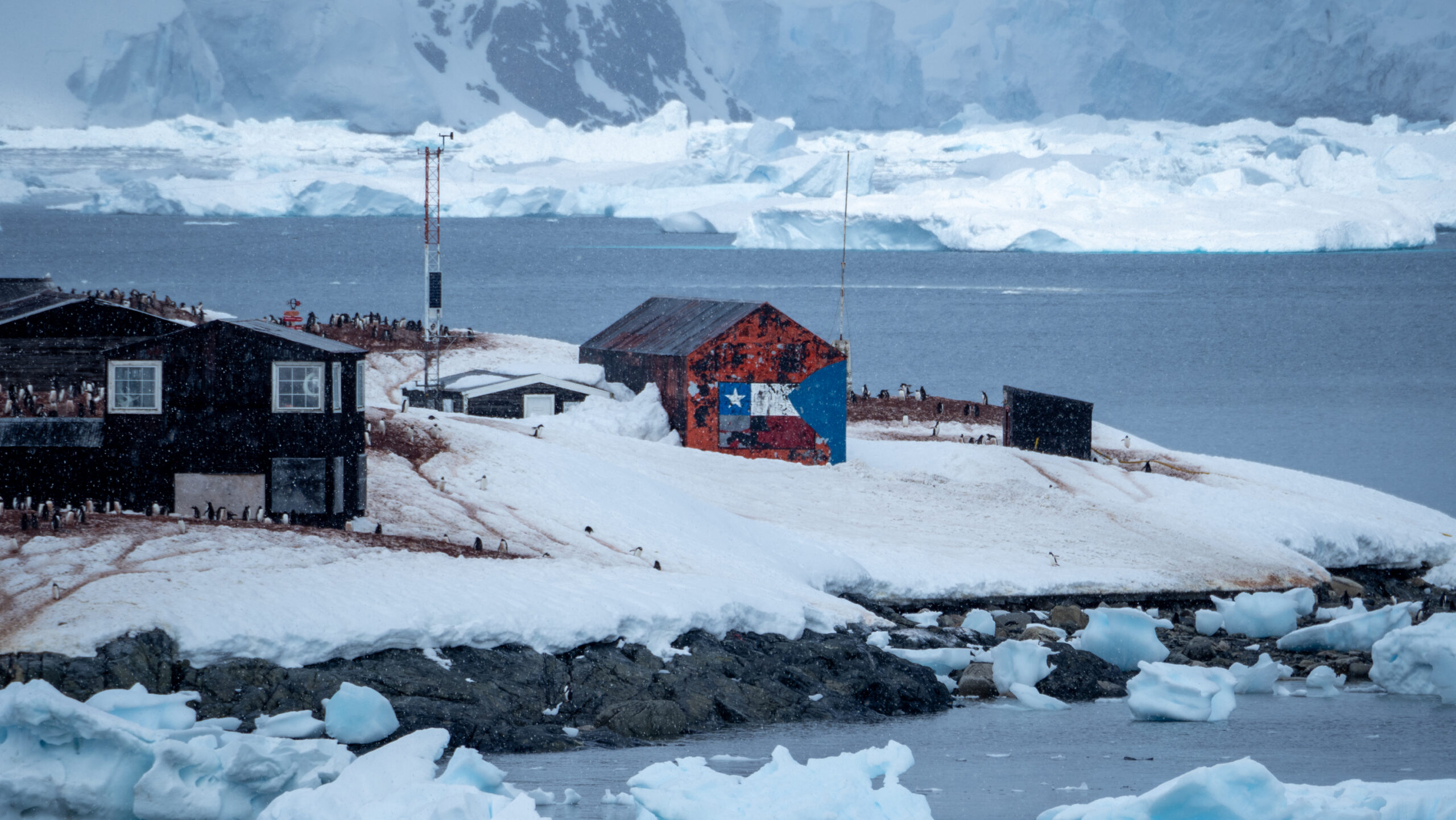
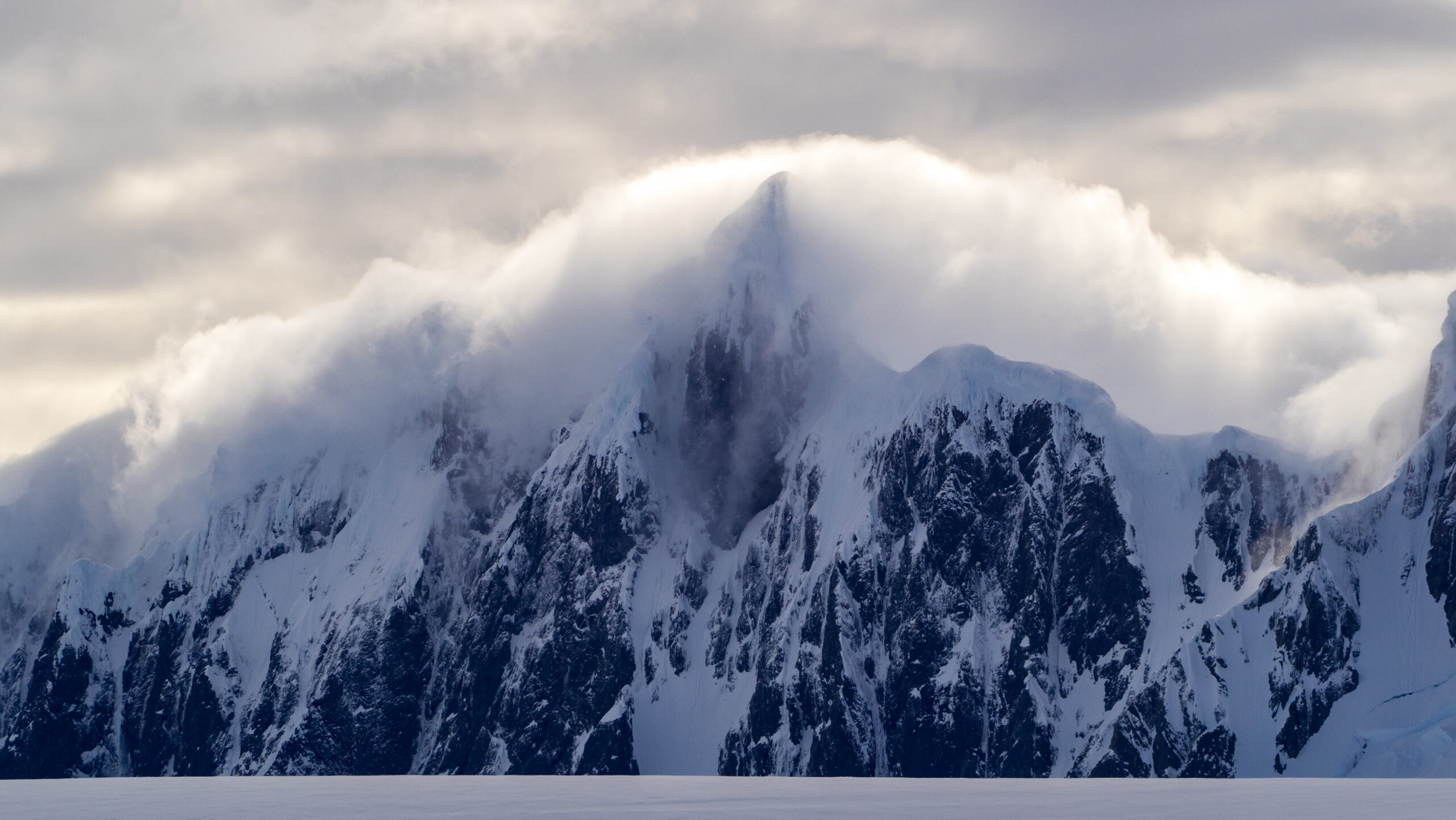
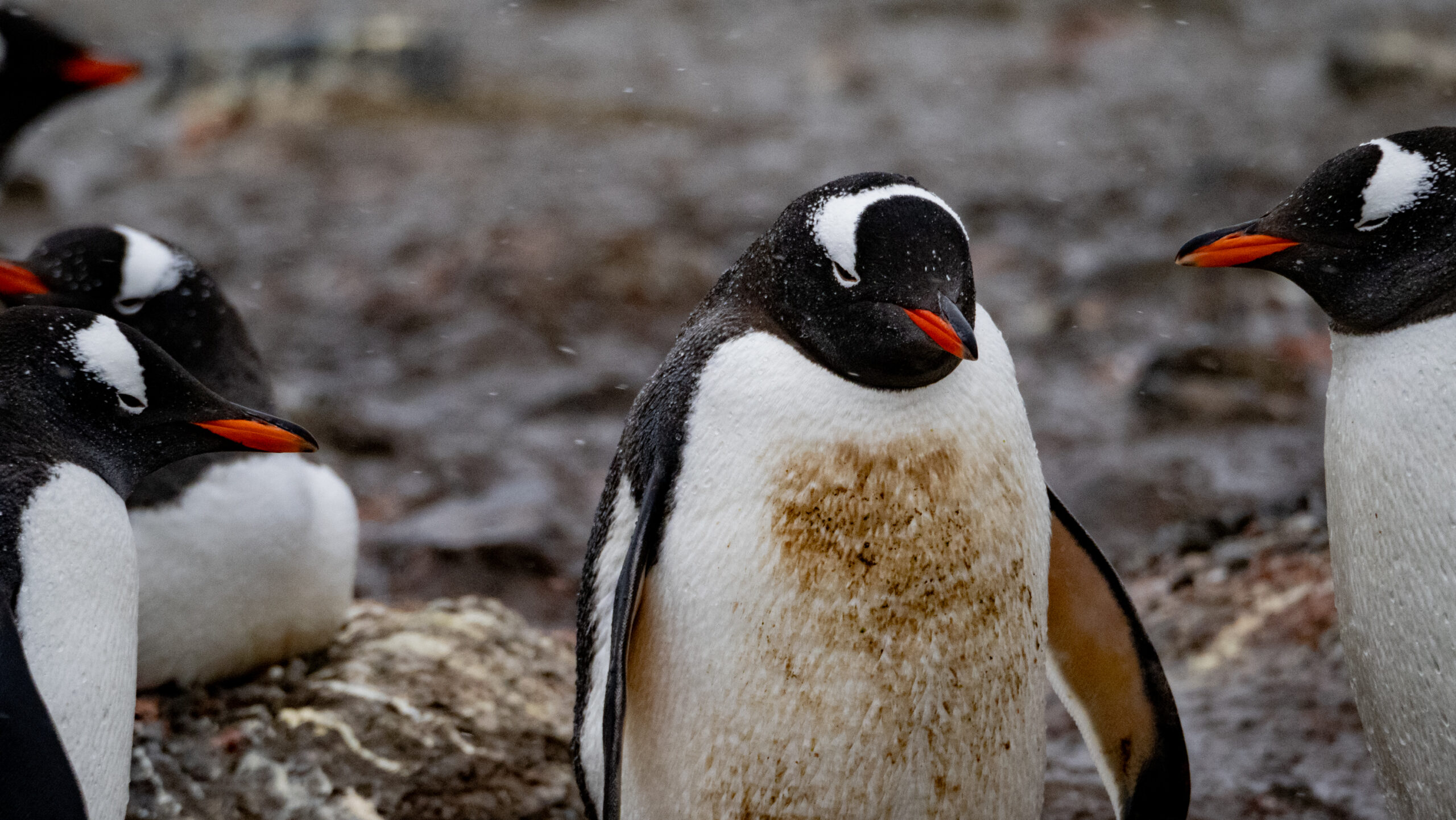


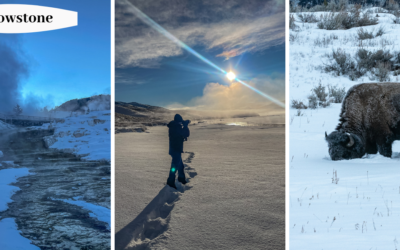




0 Comments